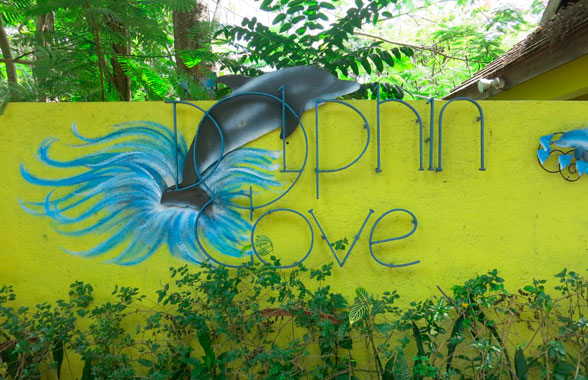I may have been fortunate in the first place. On top of my perch as a full tenured professor of one of the world’s prominent universities for an extended period of time, I had a unique window through which a multiplicity of events could be viewed. The City University of New York (CUNY) attracts students from more than 200 countries, representing all the corners of the earth. It also boasts a commensurate quantity and quality of some of the finest faculty and administrators in academia.
My own processing as a student, at the tertiary level, carried me through the Ivy-League halls of Cornell to one of the largest private urban universities in the world, referring to New York University (NYU). Needless to say, this student experience also had a rich and highly informative international dimension.
This introductory reference hopes to inform and make the case that the author has had the opportunity to interact with all sorts and conditions of men; to intermingle with a variety of cultures; and to examine how different people navigate the trials and triumphs of the human experience.
NO TALLER MAN
Applying this knowledge to Sir Howard, what have I found? What is the central lesson learned? I have found and the central lesson learned is that in all my dealings with the human race, I had not met a “TALLER” MAN—or woman. It is of very great significance that this conclusion has been recertified even after exhaustive reviews of this seemingly absolute position.
It is extremely noteworthy that the element or factor of “integrity” was the singular measuring rod which guides and conditions so immovable a conclusion. This is somewhat consistent with Liebig’s Law of the Minimum, a potent but often disguised truth, not readily recognized by many. In essence the law states that it is the least, most limiting or minimum factor and not the total resources available, that is responsible for the peak performance of an operation.
Accordingly, my own perception of “integrity” has since changed. Whereas in the past, it was seen by me merely as a very good social asset, today it is considered a profound, mysterious revelation, embodying religious and Christian-like propensities.
It suggests that if a man or woman exhibits a very high degree of integrity, s/he must also possess, directly or indirectly, knowingly or unknowingly, a correspondingly high degree of other positive correlates such as ethics and morality as part of his/her overall architecture.
No doubt, these correlates are also expected to include David’s “blessed man” philosophy whose “leaf shall not wither, and whatsoever he doeth shall prosper;” they will, in all likelihood, include the element of the unassailable directive which contends that “by their fruits he shall know them,” and “a good tree can only bear good fruit;” and they will, probably, include Paul’s interpretation of love/charity as well as his “fruits of the Spirit.” Not surprisingly, then, Sir Howard’s various activities and occupations had always met with a high degree of success.
NEW IQ FOR LASTING MEMORY
In view of the fact that this “integrity” finding or revelation is associated with the name of Sir Howard, it shall be, hereby, labeled the “Sir Howard Signature” in honor of his great name. Accordingly, a person who demonstrates an unusually high level of integrity will possess the “Sir Howard Signature” and can himself/herself be so honored. Furthermore, from this day forward all persons can/shall be seen as having two(2) IQs: the traditional one associated with intelligence as usual, and this newly introduced IQ or Integrity Quotient, commemorating the life and times of Sir Howard Cooke.
Integrity Quotient can have limitless subjective applications; can be given a value of 100; and is positively related to goodness, nobility, and honor. Further details can be left for a later time.
BEATING THE ODDS
If an odds-maker met young Howard Cooke at age seven, assuming the first day in primary school, in his humble village of Goodwill, far in the hills of St. James, what odds would he affix to the youngster of becoming the number one man or head of state of his country? Would it be 1-1 million; 1-10 million……..1-1 billion?
Especially at the primary, not high, school level in those days, these odds would be off the charts, if they could be mentioned at all. What the poor unsuspecting odds-maker would not have known at that time was that his little subject was a sure thing, with odds of 1-1. What this odds-maker would not, and could not have guessed, was that this little innocent boy in question was already a king in the making; that he was already endowed with the guided missile—perhaps divine in nature—which would guide him along every step of the way, breaking down the multiple barriers, towards his final destination—King’s House, along with his two Knighthoods.
Earlier it was declared that I had not met a “taller” man than Sir Howard. But what if this declaration was shortsighted? Was it overstated? No, because this conclusive finding includes my travels to Africa where I interacted with a good cross-section of international scholars and dignitaries. It includes my travels to Europe, particularly few extended sessions at Oxford and Cambridge Universities, meeting with a vast contingent of intellectuals, political, business and other elites, introducing, analyzing, and interpreting the provocative topics of the day. Nor have I overlooked the various Americas of our western world. Accordingly, along with the remarks of the opening paragraphs, the global village has been adequately scanned.
KING’S MODEL MAN VERSUS SIR HOWARD
In one of his more eloquent pronouncements, Martin Luther King maintains that “The ultimate measure of a man is not where he stands in moments of comfort and convenience, but where he stands at times of challenge and controversy.” How is this relevant to Sir Howard? I had the occasion and privilege of having a ringside seat to one of, perhaps, his most delicate decision-making processes. The stakes were very high, involving historic, earth-shattering, occupation-changing, and unconventional, eye-raising, diplomatic proportions. The fact was, Sir Howard had made a firm, personal commitment on a certain matter. There were contemporaneous developments that were overlooked by the biggest players in his usually surefooted supporting cast.
Traditionally, the way these “accidents” are resolved range from a polite excuse, to an apology, to providing a substitute to deputize– without much regret or remorse. This time it was different because of the very personal nature of the commitment. When time came to administer the typical remedies, it was made clear to the managers of affairs that because he had given his personal word regarding the commitment, he would not go back on it, even in the face of the disaster-prone consequences. True, there were some very awkward moments; but in the end, all had to make the necessary adjustments. The earth never sank, the heavens did not fall, and Sir Howard’s wishes were successfully accommodated, executing his idea that his word is his bond.
The resolution of this issue was huge to me, and to everyone who was familiar with the intricacies and potential ramifications of the matter. These were the types of events which shaped the statue of Sir Howard. Events that did not come during moments of comfort and convenience, but during times of challenge and controversy. The way the script was written, and the way the issue was resolved, the Martin Luther King’s model man is virtually identical to our man, Sir Howard, now being memorialized. It was as though the Rev. King was looking at the governor general when he was making his now-famous pronouncement.
The late governor general was a great student of history. Combined with his natural instinct and training as a teacher, he would always leave his audiences satisfied. And, if his audience turned out to be a one-person conversation, he was equally gifted. Indeed, it was after a number of high-level conversations on some of the more controversial moral issues of our time, that led me to conclude that one can reap similar psychic income from a conversation as from a Lincoln Center concert, an acclaimed Broadway play, or a virtuoso opera performance.
He always wanted the best for his friends and associates. If he thinks that one has something to offer, he would apply a variety of subtle, diplomatic prompting to get it on paper “before it is too late”. In this connection my book, “Basic Principles of Economics,” met the publication date a full year in advance of schedule. Normally, working causally, and considering distractions, it would be one or two years behind scheduled time.
Sir Howard was kind, charitable and, as mentioned earlier, had this natural, undying love for children. As president of The Committee for the Economic Redevelopment of Jamaica (CERJ) it was part of our mission to visit needy primary schools throughout Jamaica via a summer program.
During the week-long program, buildings would be painted, associating roads fixed, libraries installed or extended, there was usually a health fair and a needy student of each school visited would be awarded a scholarship to an accredited high school until graduation. Sir Howard was the only person in Jamaica who had ever voluntarily awarded a scholarship from his own personal resource when his primary school at Goodwill, St. James, was visited. Furthermore, he traveled to Goodwill from Kingston, the Sunday of Jamaica Volunteer Week to preach the sermon for us, reflecting the humble side of his character. But both of these gestures also remind us, in no uncertain terms, of his love and reverence for his roots.
Sir Howard Felix Hanlan Cooke was one of a kind: a pearl of great price. He has left us an extraordinary legacy. It is now our social responsibility to preserve by way of institutionalizing, in whole or in part, this monumental gift for posterity. This legacy has the significance and reach not only to serve the needs of Jamaica, land he loved, but also to serve as a global asset for the rest of the world.
























